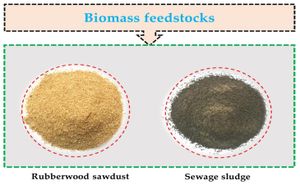The Central Intelligence Agency has recently reassessed its stance on the origins of COVID-19, indicating it now believes the virus likely originated from a lab leak rather than from natural zoonosis. This statement marks a significant pivot for the intelligence agency, which had maintained neutrality on the issue until now. Reported by NBC News, a CIA spokesperson asserted, "CIA assesses with low confidence, a research-related origin of the COVID-19 pandemic is more likely than a natural origin based on the available body of reporting." This assessment coincided with the confirmation of John Ratcliffe as the agency's new director.
Previously, Ratcliffe had publicly supported the theory linking COVID-19 to the Wuhan Institute of Virology (WIV) long before his confirmation. He stated on Breitbart, "I’ve been on record, as you know, saying I think our intelligence, our science, and our common sense all really dictate the origins of COVID was a leak at the Wuhan Institute of Virology." This exhibition of confidence contrasts sharply with the CIA's assessment, which was accompanied by the admission of low confidence.
The shift in the CIA’s narrative has reignited discussions fueled by political figures and media. Senator Tom Cotton from Arkansas, a longstanding proponent of the lab-leak theory, emphasized, "Now, the most important thing is to make China pay for unleashing a plague on the world," highlighting the intense political undercurrents amid scientific inquiry.
Multiple news outlets reported the CIA's claims, summarizing them as the agency favoring the lab-leak theory. Interestingly, many reports failed to give weight to the caveat included by the CIA, which stated the conclusion was made with low confidence. A commentary from the New York Times emphasized the necessity of examining this caveat, especially as it may reflect the lack of supporting evidence for the lab-leak hypothesis.
Despite the surge of interest surrounding the CIA's new assessment, experts highlight significant gaps in supporting evidence. A previous report by the Office of the Director of National Intelligence released last June indicated varied conclusions among intelligence agencies: five agencies believed the origin to be natural, two supported the lab-leak theory, and the CIA, along with another agency, could not determine the precise origin. This earlier assessment rendered the new CIA statement controversial among experts and lab-leak advocates alike.
Critics have underscored the language used by the CIA, particularly the term "low confidence," which reflects uncertainty about the information's credibility. According to definitions used by the intelligence community, low confidence indicates fragmented or poorly corroborated information, making it hard to draw solid conclusions. A highlighted statement informed readers, "The CIA didn't offer any evidence or explain what prompted its assessment,” prompting questions about the validity of the new claims.
While proponents of the lab-leak theory continue to push their narrative, the scientific community has largely remained skeptical. There has yet to be any scientifically valid evidence supporting claims of the virus escaping from the Wuhan laboratory. Instead, experts like John P. Moore, microbiology and immunology professor at Weill Cornell Medical College, contend findings support the assertion of natural origins backed by ample epidemiological data from the Huanan market.
The intense scrutiny of the lab-leak hypothesis raises concerns about the way misinformation can influence public health and future scientific endeavors. It reflects larger societal issues, where speculation and media narratives overshadow empirical evidence. Notably, some scientists warn the unfounded lab-leak theory stokes anti-science sentiments, potentially undermining trust and resources needed to address pandemics. A collective of41 biologists and health experts expressed similar sentiments, stating, "The unfounded lab-leak hypothesis stokes the flames of an anti-science, conspiracy-driven agenda."
Reports about the origins of COVID-19 are fraught with political motivations and public stakes. The debate continues to evolve with significant ramifications not only for U.S.-China relations but also for the global approach to future public health crisis management. Despite changing demands for descriptions of the pandemic's origins, the analysis from the CIA remains clouded by political agendas and questions of scientific credibility.



